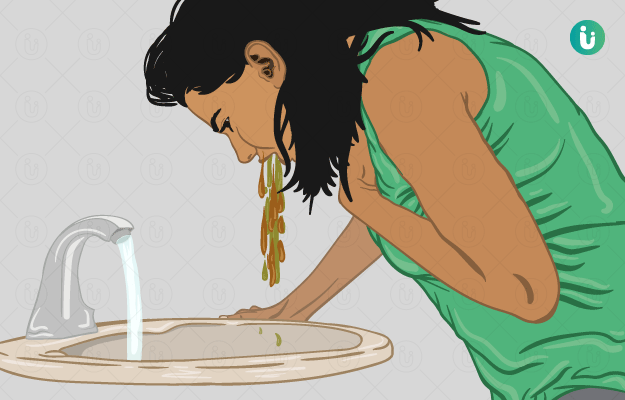
According to the Centres for Disease Control, an estimated 48 million people get sick from food poisoning in the world each year. It is estimated that food poisoning leads to 325,000 hospitalizations, 5,000 deaths, and $7.9 billion in healthcare costs in the U.S. alone. One of the ways to prevent these is to understand the risks linked to food poisoning and the food safety practices that you can follow to reduce the risks.
Before we move ahead with the tips to reduce the risk, let’s learn what food poisoning is and the symptoms associated with it. This condition can be caused by different factors. It is good to know the causes so that you can take action to keep yourself and your loved ones safe from it.
What Is Food Poisoning?
Food poisoning is a common digestive illness that can have serious health consequences. It is described as an illness that can occur following the consumption of contaminated food. It is a serious public health problem that is caused by bacteria, viruses, or parasites that get into food that is not prepared or handled hygienically.
Symptoms of Food Poisoning
Food poisoning can occur when an individual has ingested something dangerous to health. While it isn’t as severe as other illnesses, it can still be quite dangerous. Food poisoning symptoms usually start within 24 hours of consuming contaminated food and include:
- Stomach pain such as cramps, diarrhea, nausea, and vomiting
- Redness on the face
- Dark urine
- High fever
- Dehydration
- Dizziness
Sometimes, food poisoning is caused by certain types of bacteria, viruses, or parasites. It can also be caused by improper storage, preparation, and handling of food. Therefore, it is essential to follow food safety guidelines to prevent it.
Tips to Reduce Food Poisoning Risk
Here are a few tips to reduce food poisoning risk,
Cleanliness
The most important thing you can do to avoid food poisoning is to first prevent it from happening. Make sure everything is clean, including your cooking surfaces. Wash your hands regularly, especially before handling food. Wash all the fruits, vegetables, and even meat with clean water. To avoid food poisoning, you first need to clean your kitchen.
Start with your kitchen counter and then your shelves followed by the food containers, and finally, the utensils. With a clean kitchen and clean food, you can improve the health of your family and yourself.
Cooking Temperature
Keep an eye on the temperature of the food you are cooking. Make sure that it is in the correct range to avoid food poisoning and spoilage. Use an oven thermometer for an accurate temperature reading. If you are preparing a recipe that contains ground beef, make sure you put it in a separate dish because it can spread contaminants to other food. Another important factor is to keep your food away from the bacteria that can grow on the surface of the kitchen faucets.
Avoid Eating Leftover Food
To protect yourself from food poisoning, avoid eating food that is kept outside the refrigerator for longer than a few hours. Food that is kept at room temperature for extended periods can harbor the bacteria that cause food poisoning. It’s just not good to eat spoiled food. Even If you want to eat food that has been left outside the refrigerator for long periods, make sure to re-heat the food to kill off any harmful pathogens.
Check the Expiry Date of Packaged Foods
Always make it a habit to check the expiry date of packaged foods. Most people usually ignore this when they buy groceries, especially items like canned foods and bottled drinks. They just assume that they are safe to consume, but they have no idea that they are already expired. So, make sure to check the expiry date of your food.
Kitchen Towels and Aprons
Kitchen towels and aprons are the most used things in the kitchen. After a while, they can become unpleasant and unhealthy to use. You need to make sure to wash them regularly and keep them from getting dirty. You can wash them manually or you can put them in the washing machine. Either way, make sure you use warm water and add some bleach to the wash cycle. This will make sure that the towels are disinfected and that they will stay sanitary for longer.
Along with these tips, you should also wash your hands thoroughly with warm water and soap for at least 20 seconds, especially after using the restroom or handling raw meat. You should also wash fruits and vegetables and let them soak in a mixture of lemon juice and water for 10 minutes and then wash with hot water. Make sure your refrigerator is set below 40 degrees Fahrenheit, especially if you’re not going to use leftovers within 3 days. A refrigerator that is too warm can lead to bacterial growth and can even turn leftovers into a breeding ground for bacteria. By following these guidelines, you can reduce the risk of food poisoning and live a healthier life.
